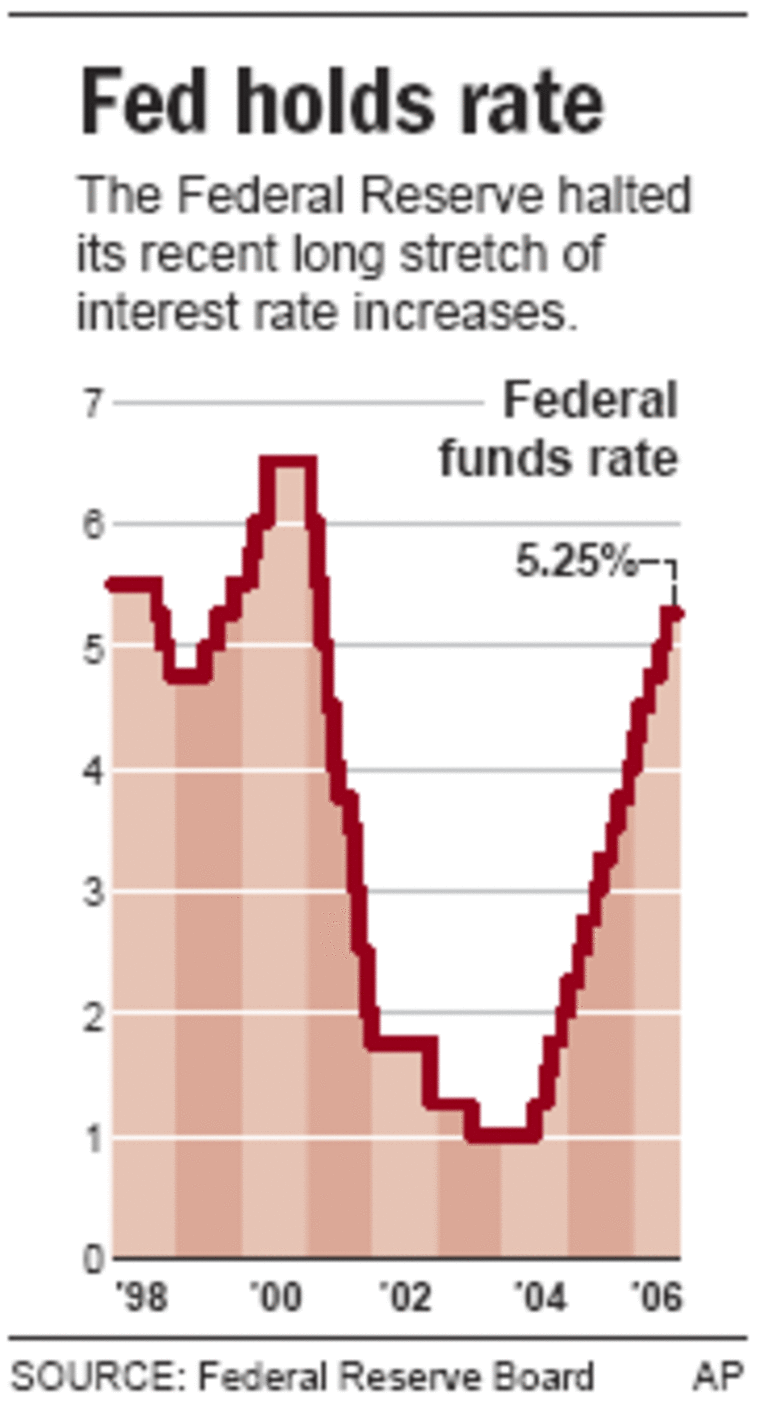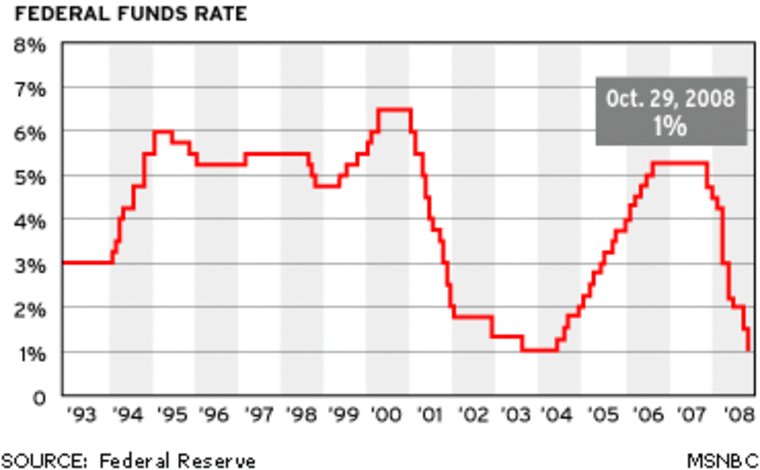The Federal Reserve’s decision not to raise rates for the first time in two years should give both consumers and businesses some breathing room.
When the Fed holds short-term rates steady, banks and financial institutions such as credit card companies generally don’t change their rates either, said Greg McBride, senior financial analyst for Bankrate.com in North Palm Beach, Fla.
So borrowers with variable-rate debt, including credit card and home equity lines of credit, probably won’t see their rates go up in the near future.
“But borrowers with adjustable-rate mortgages aren’t out of the woods yet,” McBride warned. “The cumulative effect of all the increases to date mean your rate is going to go up — next month, in the next six months or sometime next year.”
Perhaps the most important thing the Fed did Tuesday was give itself room to maneuver, said analyst Charles Rotblut of Zacks Equity Research in Chicago.
While the Fed did not raise the nation’s benchmark interest rate from its current level of 5.25 percent, the central bank said in its policy statement “some inflation risks remain,” and it left open the possibility of further rate hikes to try to contain inflation.
The Fed “has left itself with plenty of flexibility going forward,” Rotblut said.
Because there’s a lag between Fed action and economic change, “we will not know if today’s decision was correct until early winter,” Rotblut said. But he argued that the Fed was better off erring on the side of more inflation than insufficient credit.
Ed Keon, chief investment strategist at Prudential Equity Group in New York, said the Fed’s move could be good for the stock market, which has been volatile in recent weeks as investors tried to anticipate what the Fed would do.

“I expect some back and forth over the next several days as people digest this,” he said in a research note.
Still, Wall Street seemed more uncertain than happy about the Fed’s decision Tuesday. Stocks closed lower, with the Dow Jones industrial average falling 45.79, or 0.41 percent, to 11,173.59.
With the economy having slowed in recent months — in part because of higher rates — some investors and economists are worried about a possible recession. But Keon called it unlikely, saying: “I believe we’ve seen the worst of the uncertainty and expect stock prices to move up — with some ups and downs — for the rest of the year.”
Bernard Baumohl, executive director of the Economic Outlook Group LLC in Princeton Junction, N.J., said the Fed’s lack of action could be good for the economy, too.
“By keeping their hands off the monetary throttle this time, the Federal Reserve has increased the probability the economy is on approach toward a soft landing,” he said.
Still, he said, a recession could not be ruled out, in part because of rising crude oil prices.
“If there’s such geopolitical instability that oil prices may now not just stay around $75 to $80 but move up to $80 to $85 ... you really add a lot more pressure to the economy,” Baumohl said.
Higher oil prices on top of slowing consumer spending, a weakening housing market and lower business investment “could put a serious dent on growth for the balance of this year and raise the risk of recession,” he said.
He believes it’s not impossible that the next interest rate move by the Fed won’t be until the first quarter of next year — and then it will be to lower the federal funds rate to 5 percent to stimulate a weakening economy.
